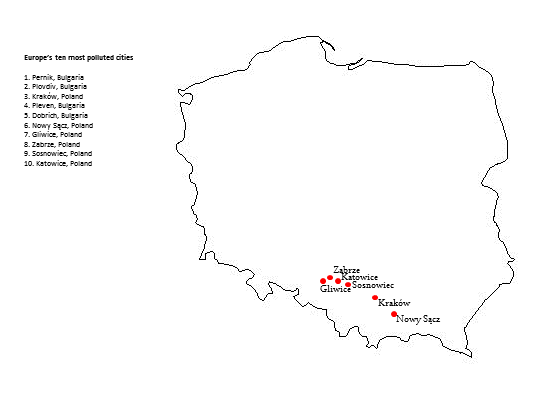The Pope, Poland, and Pollution
“The Pope is attacking the fuel of the Poles” announced the conservative daily newspaper Rzeczpospolita last Thursday (quoting the Italian weekly Politico just to be on the safe side). The reference was, of course, to Pope Francis’ new encyclical Laudato si, which calls for a renewed attention to environmental protection as part of a broader social justice agenda. While the document was not “anti-Polish” (contrary to the claims of some on the Polish right), it did call for restriction on the use of coal, and Poland is one of the global leaders in coal production. Worse, the type of coal mined (and burned) in Poland is particularly harmful for the environment. Let’s face it: cutting back on the use of coal will cause a lot of suffering in Silesia, and it is easy for environmentalists in Warsaw (not to mention Brussels) to call for “necessary sacrifices” when they aren’t facing the unemployment and the apocalyptic post-industrial wasteland of huge swaths of southwestern Poland. At a time when EU austerity policies are wreaking so much havoc across the continent, we can understand why people would be skeptical when outsiders tell them that their livelihoods must be laid upon the altar of global well-being.
So let’s not make that argument. Let not even use the Pontiff’s approach by appealing to a Christian duty to protect the earth and to save the weak from the environmental hazards that strike them the hardest. No, let’s keep this local: no one is harmed more by the Silesian mines than the Silesians themselves. Of the ten most polluted cities in the entire European Union, six are in Poland: Kraków, Nowy Sącz, Gliwice, Zabrze, Sosnowiec, and Katowice. In other words, the cities clustered around Poland’s largest coal-mining region. Is any additional argument necessary?
